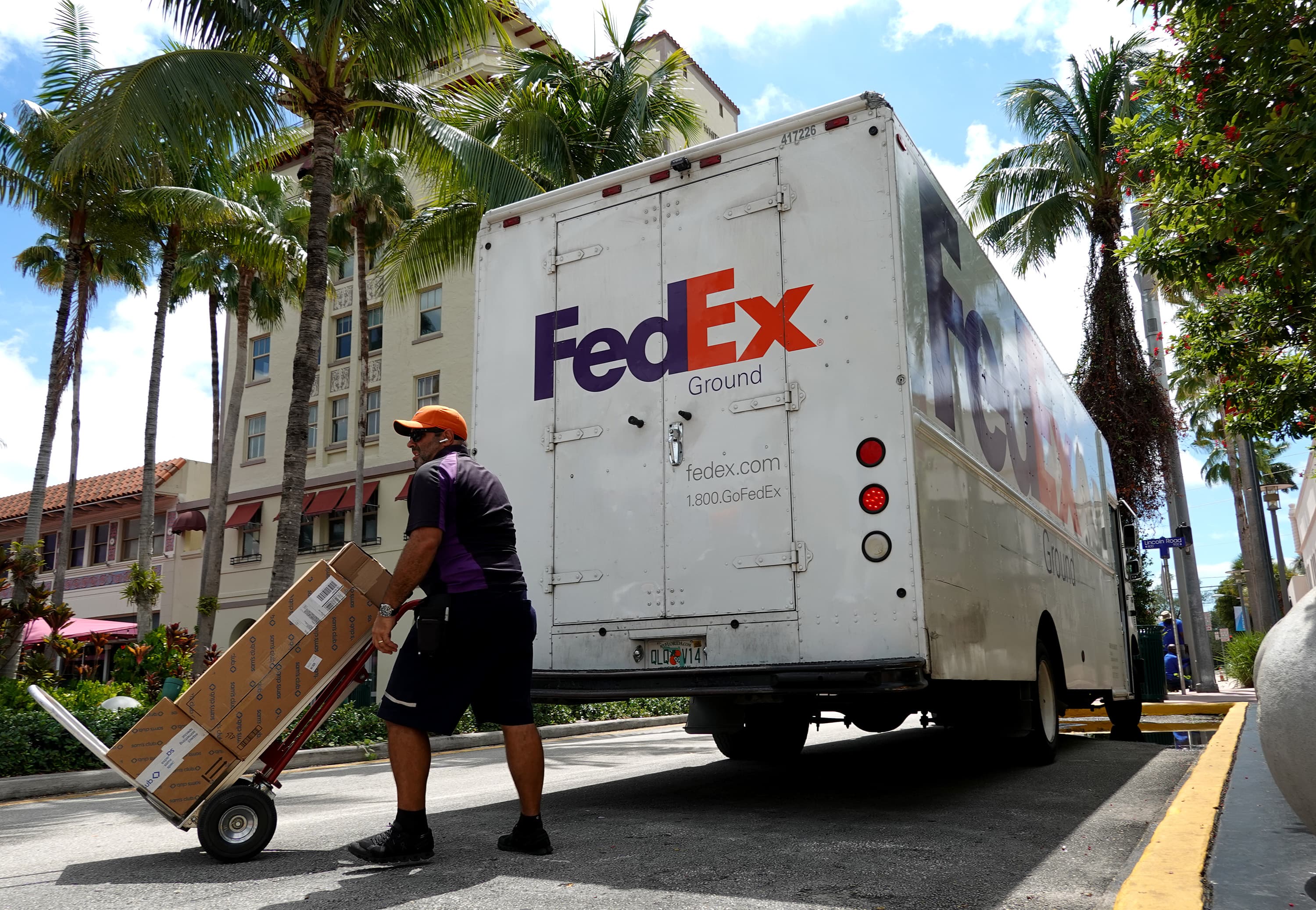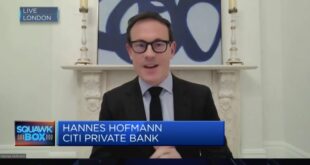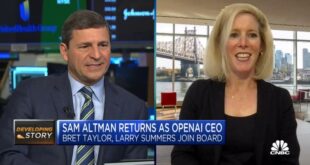The Bank of England warned that the U.K. will enter recession later this year. The expected recession is forecast to be the longest since the global financial crisis.
Vuk Valcic | SOPA Images | LightRocket | Getty Images
The Bank of England voted to raise its base rate to 2.25% from 1.75% Thursday, lower than the 0.75 percentage point increase that had been expected by many traders.
Inflation in the U.K. dipped slightly in August but at 9.9% year-on-year remained well above the bank’s 2% aim. Energy and food have seen the biggest price rises, but core inflation, which strips out those components, is still at 6.3% on an annual basis.
related investing news

The BOE dropped its key rate, known as the Bank Rate, down to 0.1% in March 2020 in an attempt to prop up growth and spending at the onset of the coronavirus pandemic. However, as inflation began to rise sharply late last year, it was among the first major central banks to kick off a hiking cycle at its December meeting.
This is its seventh consecutive rise and takes U.K. interest rates to a level last seen in 2008.
In a release explaining its decision, the bank noted volatility in wholesale gas prices but said announcements of government caps on energy bills would limit further increases in consumer price index inflation. However, it said there had been further signs since August of “continuing strength in domestically generated inflation.”
It added: “The labour market is tight and domestic cost and price pressures remain elevated. While the [energy bill subsidy] reduces inflation in the near term, it also means that household spending is likely to be less weak than projected in the August Report over the first two years of the forecast period.”
Five members of its Monetary Policy Committee voted for the 0.5 percentage point rise, while three voted for a higher 0.75 percentage point rise that had been expected by many. One member voted for a 0.25 percentage point rise.
The bank said it was not on a “pre-set path” and would continue to assess data to decide the scale, pace and timing of future changes in the Bank Rate. The committee also voted to begin the sale of U.K. government bonds held in its Asset Purchase Facility shortly after the meeting and noted a “sharp increase in government bond yields globally.”
The bank’s decision comes against a backdrop of an increasingly weak British pound, recession forecasts, the European energy crisis and a program of new economic policies set to be introduced by new Prime Minister Liz Truss.
Sterling hit fresh multi-decade lows against the dollar this week, trading below $1.14 through Wednesday and dipping below $1.13 early Thursday. It has fallen precipitously against the greenback this year and was last at this level in 1985. It was up 0.2% after the BOE decision with the 0.5 percentage point rise fully priced in.
The devaluation of the pound has been caused by a combination of strength in the dollar — as traders flock to the perceived safe-haven investment amid global market volatility and as the U.S. Federal Reserve hikes its own interest rates — and grim forecasts for the U.K. economy.
Numerous analysts, along with business association the British Chambers of Commerce and the BOE itself, have said they expect the U.K. to enter a recession before the end of the year. As well as energy price shocks, it faces trade bottlenecks due to Covid-19 and Brexit, declining consumer sentiment and falling retail sales.
Meanwhile, the country’s newly-formed government has set out numerous significant economic policy proposals this month ahead of a “fiscal event,” dubbed a mini budget, when they will be officially announced on Friday.
This is expected to include a reversal of the recent rise in National Insurance tax, cuts in taxes for businesses and home buyers, and a plan for “investment zones” with low taxes.
Truss has repeatedly stressed a commitment to lowering taxes in a bid to boost economic growth.
However, the energy crisis has also meant the government has announced a huge spending package to curb soaring bills for households and businesses.
Data published Wednesday showed the U.K. government borrowed £11.8 billion ($13.3 billion) last month, nearly twice as much as forecast and £6.5 billion more than the same month in 2019, due to a rise in government spending.
The U.K. is not alone in raising interest rates to combat inflation. The European Central Bank raised rates by 75 basis points earlier this month, while Switzerland’s central bank hiked by 75 basis points Thursday morning. The U.S. Federal Reserve raised its benchmark rate range by the same amount Wednesday.
 EU News Digest Latest News & Updates
EU News Digest Latest News & Updates


